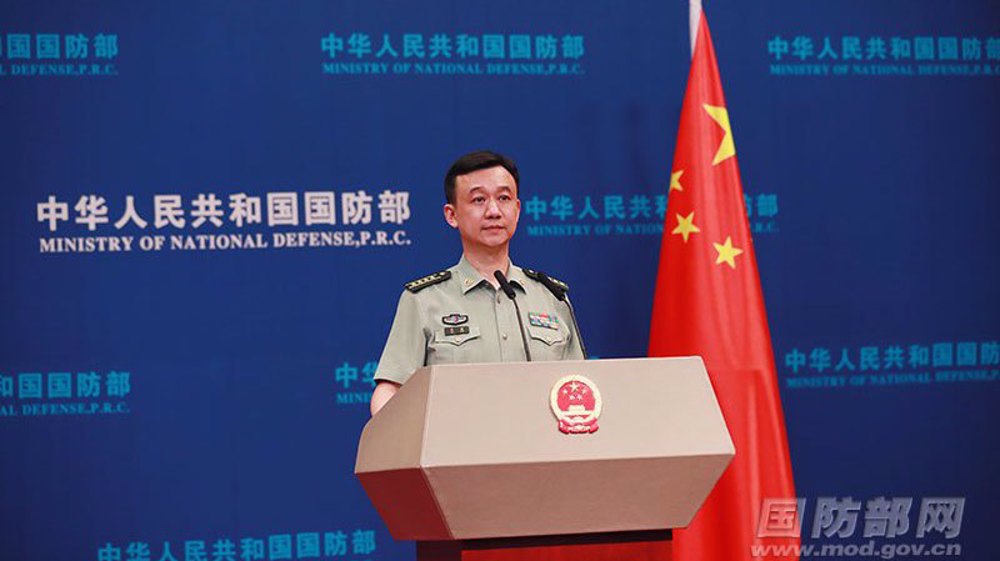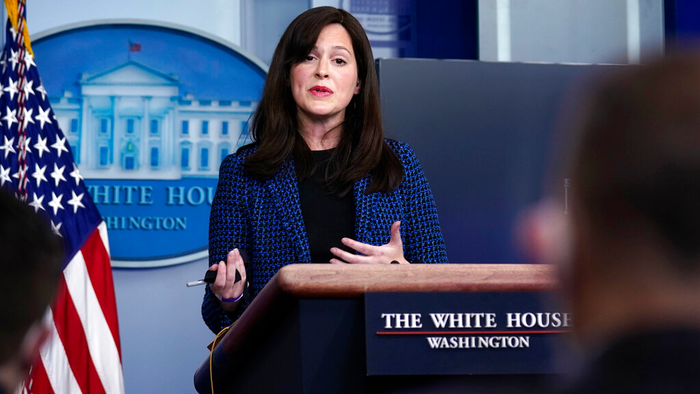Chinese expert: US is cybersecurity threat to China
The United States is a cybersecurity threat to China the same way Washington currently considers Beijing as its No.1 cybersecurity threat, according to a Chinese political analyst and researcher.
Yilun Zhang, who is a Research Associate and Administrative Officer at the Institute for China-America Studies, made the remarks in an interview with Press TV on Friday while commenting on the recent war of words between China and the US.
China last week branded the US as the “biggest threat to global cybersecurity,” after Washington publicly accused Beijing of an attack on Microsoft’s Exchange email server software that compromised tens of thousands of computers worldwide.
The United States is the “empire of hacking and theft of secrets,” and the "biggest threat to global cybersecurity,” said Senior Colonel Wu Qian, spokesman of the Chinese Ministry of National Defense.
Wu said the US has conducted mass-scale cyber espionage, surveillance and attacks on foreign governments, companies and individuals for years, calling on the international community to push back against the US cyberbullying and to urge it to explain its spying operations.
The Chinese official made the remarks in response to a recent report that said the US National Security Agency (NSA) collaborated with Denmark’s Defense Intelligence Service to spy on European officials.
Last month, China accused the US of mounting cyberattacks against the Chinese government and scientific, aviation and other technical institutions for the past 11 years.
The rivalry between the US and China has intensified in recent years, with Beijing’s growing international clout and rapid economic progress emerging as a viable counter-weight to the US.
Chinese researcher Zhang told Press TV that “cybersecurity has been hotly debated between China and the United States for over a decade now; this current episode is merely a symptom of those larger issues.”
“A typical pattern of the two countries’ exchanges on this issue has been the US actively criticizing and accusing China of spying on US government entities and private enterprises. At the same time, China denies such a claim and accuses the US of spreading the ‘China Threat Theory,’” he added.
“In the bigger picture, Senior Col. Wu’s statement was still within that periphery. The rhetoric, of course, changed drastically in recent years as China adopted a more assertive way of speaking, which some western observers dubbed recently as “wolf-warrior diplomacy”. But the change of rhetoric should not overshadow the message conveyed and the position where Senior Col. Wu stands for. Wu is the spokesman of the Ministry of Defense, whose comments purely focus on security matters. From China’s security perspective, the US is a cybersecurity threat the same way the US currently regards China as its No.1 cybersecurity threat,” he explained.
Zhang noted that the “recent report on Denmark assisting the US to spy on top EU officials is not the first time such an allegation emerged. Similar accusations were also made by Edward Snowden back in 2013. If confirmed, it would be concerning and has significant implications for the US alliance management.”
“But again, instead of just looking at actions by the United States or China, the international community ought to pay attention to cyber espionage in general and transnational criminal organizations in particular. The interconnectivity of the cyber world makes focusing on or targeting a single country pointless. Instead of guarding a specific country like the US, China, or Russia and openly blaming them for carrying out cyber-attacks, the international community should focus more on strengthening its own cyber domain and potentially jointly developing global standards to better monitor and safeguard this new frontier,” he said.
The Chinese expert said that “the rapidly developing cyber frontier, similar to other frontiers, has left China, the US, and the rest of the world, with greater uncertainties that must be better regulated.”
“Guardrails such as emergency communication mechanisms between the US and China must be put in place in order to avoid the risk of escalating conflict should a situation like this arise again,” he noted.
VIDEO | Press TV's news headlines
Child detentions surge under Trump deportation campaign: Report
VIDEO | Trump's Gaza 'peace plan' dismissed as 'one-sided and unworkable'
Sheikh Qassem: Hezbollah foiled objectives of enemy’s aggression
VIDEO | Transatlantic rift at Munich Security Conference
‘Textbook definition of terrorism’: Tehran denounces Pelosi’s call on US to exact ‘pain’ on Iranians
VIDEO | 39th AU summit opens in Addis Ababa with focus on water security, peace, and development
VIDEO | Iran: The stronghold Washington lost












 This makes it easy to access the Press TV website
This makes it easy to access the Press TV website